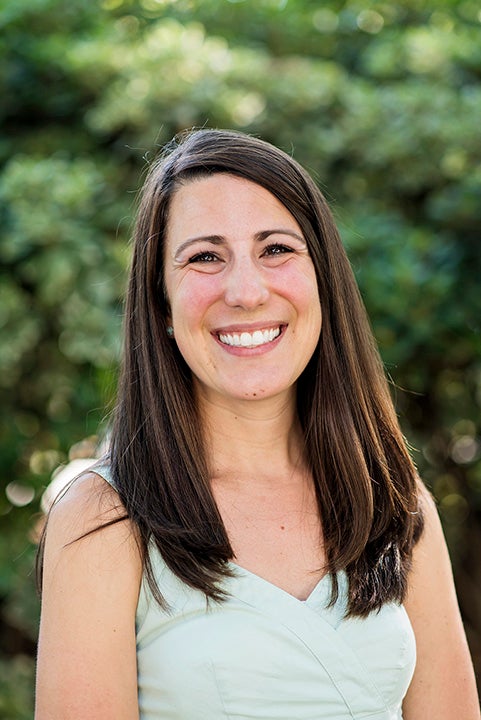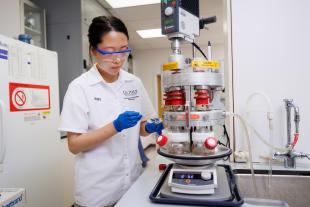What Are the Healthiest Ways to Breast and Bottle-Feed? University Researchers Investigate
Cal Poly professor Alison Ventura and her students are working to decode the unspoken mysteries between a mother and her baby. With a total of $2 million in multiple grants from the National Institutes of Health, the research team will study how interactions between mothers and babies may affect babies’ risk for overfeeding and later obesity.

“An infant’s first year is a critical period for growth and development that sets the stage for later eating behaviors, dietary preferences, and obesity risk,” said Ventura, a faculty member in Cal Poly’s Kinesiology and Public Health Department. “We hope that our research can add to the growing body of knowledge regarding how to ensure that all babies — regardless of whether they are breast or bottle-fed — have the healthiest start, and to ensure that all mothers can feel confident and supported when feeding their infants.”
For two of these studies, the researchers are recruiting participants from San Luis Obispo and Santa Barbara counties.
The first of these focuses on promoting healthy bottle-feeding and weight gain for formula-fed infants. Formula-feeding mothers with newborn to 8-week-old infants who want to participate in this 12-week study will receive free baby bottles and up to $100 if selected. Research assistants will visit mothers in their homes four times and observe mothers and infants during bottle-feeding. They’ll also take measurements to assess infant growth and development.
The second study is similar but concentrates on mothers who are breastfeeding. Participants will visit the Cal Poly Infant Feeding Lab at French Hospital for two, two-hour assessments and can receive up to $50.
“The most exciting part of these studies is the opportunity to learn about how mothers and infants respond to each other during feeding. This will be an important foundation for helping mothers tailor their feeding practices to their infants’ unique needs,” Ventura said. “These projects will also provide a number of great opportunities for Cal Poly students to learn more about infant development and the mother-infant relationship and become proficient in methods for assessing infant developmental and growth outcomes.”
To push the frontiers of how infant feeding is studied, Cal Poly will team with the University of Michigan for a third study that will follow new mothers from pregnancy through their infants’ first birthdays. Researchers in Michigan will film bottle-feeding and solid food feeding sessions. Cal Poly students will then review each recorded session and code the behaviors of both mother and baby.
The goal is to describe the behavior patterns that develop between mother and infant while feeding. Researchers will analyze the videos to understand whether and how certain patterns predict infants’ growth and development.
“An exciting part of this study is that it will be among the first to look at how both the mom and the baby develop and change over time and during the transition from early milk feeding to later solid food feeding. Then, instead of assuming that a certain set of behaviors are best for mom and baby, we are going to explore and describe what they do,” Ventura said. “Using these data-driven approaches, we’ll be able to see how different patterns of mother-infant interaction may protect against or relate to things like obesity risk.”
Ventura’s long-term goal is to better educate new mothers and provide scientific evidence for programs that encourage healthy lifelong eating habits.




